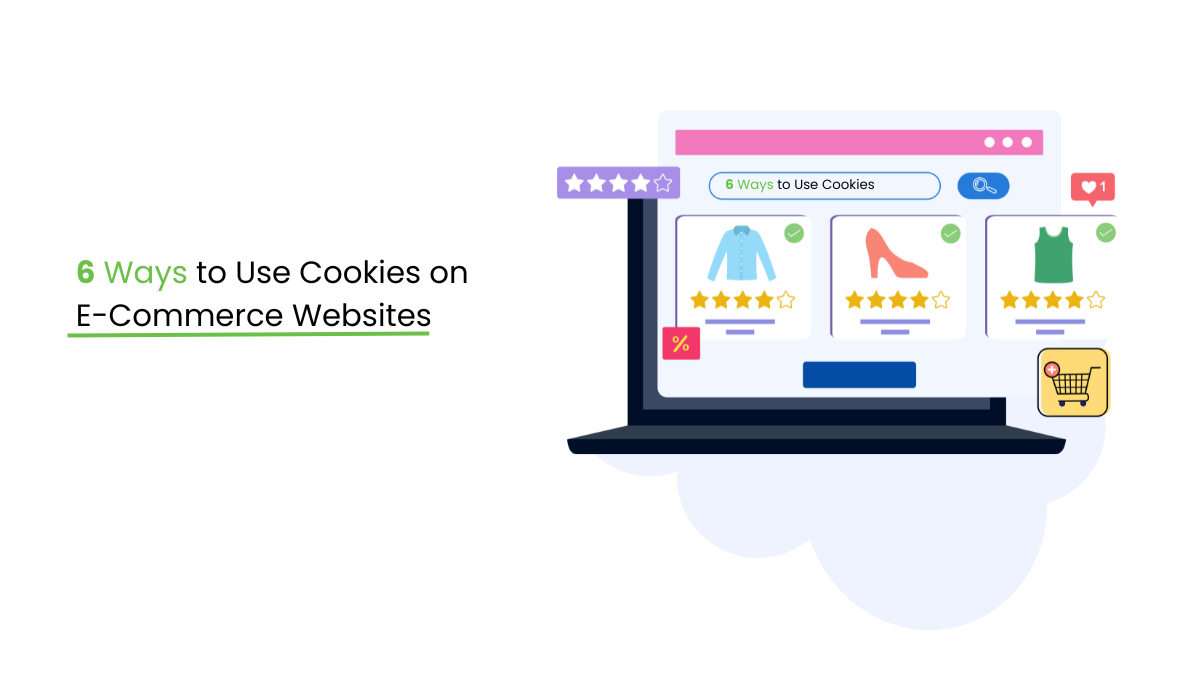Have you ever wondered how online stores remember your preferences or keep track of items in your shopping cart? This is where the use of cookies on e-commerce websites becomes crucial. But why are cookies so important for e-commerce?
Understanding cookie consent banner is essential for website owners because it ensures transparency and compliance with privacy laws.
In this blog, we’ll explore the use of cookies on e-commerce websites, its impact on revenue & user experience, and the challenges of cookie usage in e-commerce.
What Cookies are and What They Store?
Cookies are small text files stored on a user’s device when they visit a website. They help websites remember information about the user, such as their preferences, login details, and items in their shopping cart.
Overall, cookies are essential tools for improving user experience on websites, enabling features like automatic logins, personalised recommendations, and cart retention.
Types of cookies are:
| Feature | First-Party Cookies | Third-Party Cookies |
| Source | Set by the website you’re visiting | Set by a different website (e.g., advertiser, analytics tool) |
| Purpose | Enhance user experience, collect website analytics, store user preferences | Track user behaviour across websites, deliver targeted ads |
| Data Access | Owned and controlled by the website | Owned and controlled by the third-party service |
| Privacy Concerns | Generally considered less invasive | Often associated with data privacy concerns and tracking |
| Examples | Shopping cart items, login information, site preferences | Ad retargeting, behavioural advertising, analytics data sharing |
| Regulatory Impact | Subject to data protection laws (GDPR, CCPA) | More heavily regulated due to privacy concerns |
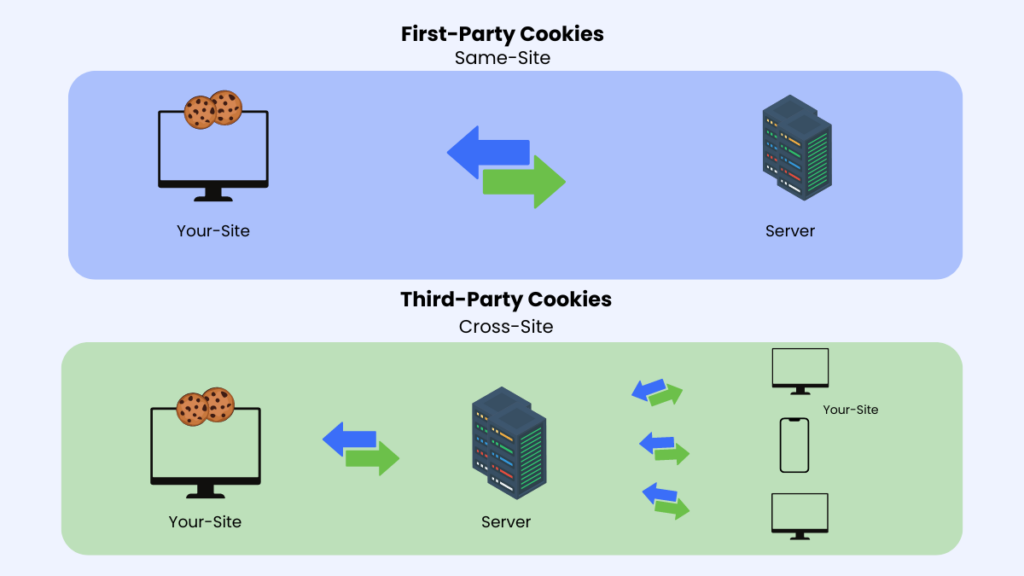
Elements of Cookie Consent Banners for E-Commerce
- Clear and Concise Language: 64% of users prefer clear and straightforward language in cookie consent notices.
- Purpose of Cookies: 58% of users are more comfortable with cookies when they understand their purpose.
- User Consent Options: 70% of users want clear choices to accept, reject, or customise cookie preferences.
- Privacy Policy Link: 65% of users check privacy policies for detailed information on cookie usage and data protection.
- Easy Access and Visibility: 72% of users prefer cookie consent banners that are visible but not obstructive.
- Customisation and Design: 60% of users appreciate customisable cookie banners that align with site branding.
- Opt-in/Opt-out Functionality: 68% of users want straightforward opt-in/opt-out options for different cookie types.
Would you like to discuss best practices for different types of businesses?
Learn MoreUse of cookies on e-commerce websites
Cookies are used in e-commerce stores and websites to improve the customer experience by remembering user preferences and shopping carts.
The following are examples of cookies being used on e-commerce websites.
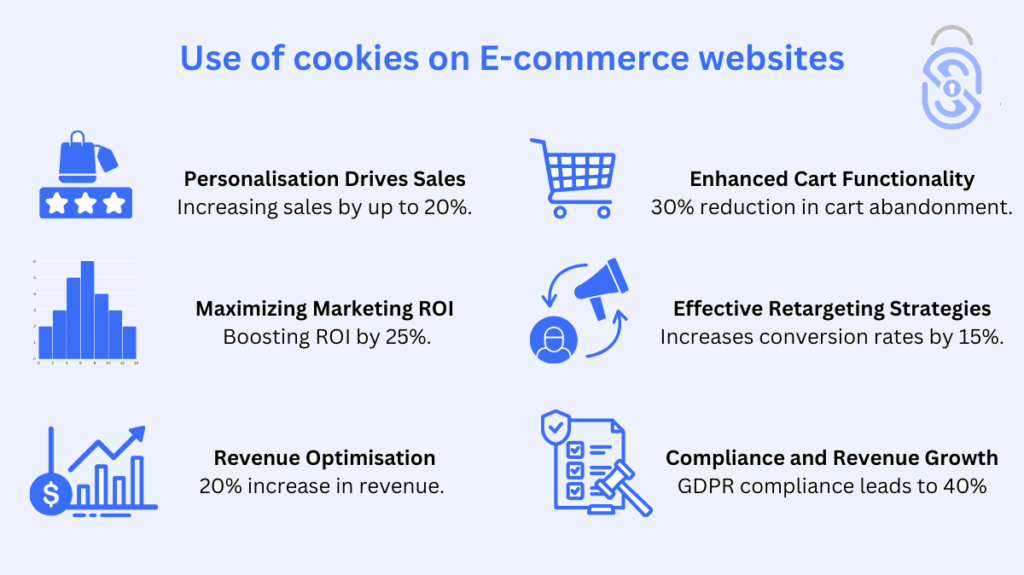
1. Personalisation Drives Sales
Cookies enable e-commerce sites to remember user preferences, such as previously viewed products and favourite categories, which leads to a more tailored shopping experience.
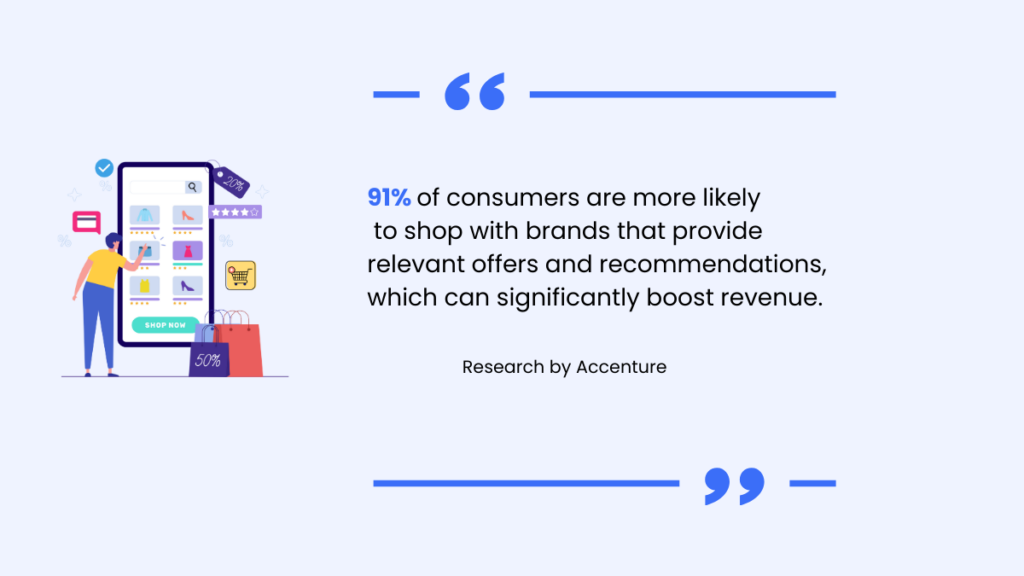
Cookies track user behaviour to provide personalised product recommendations.
McKinsey report found that personalised recommendations can drive a 10–30% revenue increase, as they help increase average order value and encourage repeat purchases.
2. Enhancing Cart Functionality
Cookies help retain items in a shopping cart even if a user leaves the site and returns later.
The Baymard Institute reports that effective cart retention strategies can reduce cart abandonment rates, which impact nearly 70% of online shoppers.
Implementing cookies to track abandoned carts and send targeted reminders can significantly boost recovery rates.
Remarkety research shows that abandoned cart emails can increase recovery rates by up to 30%, converting abandoned carts into completed sales.
3. Maximising Marketing ROI with User Data
Cookies gather data on user behaviour, such as browsing patterns and purchase history.

Cookies enable targeted advertising based on user interests and past interactions.
4. Implementing Effective Retargeting Strategies
Cookies track users who visit your site but do not make a purchase, allowing you to run retargeting campaigns with personalised offers.
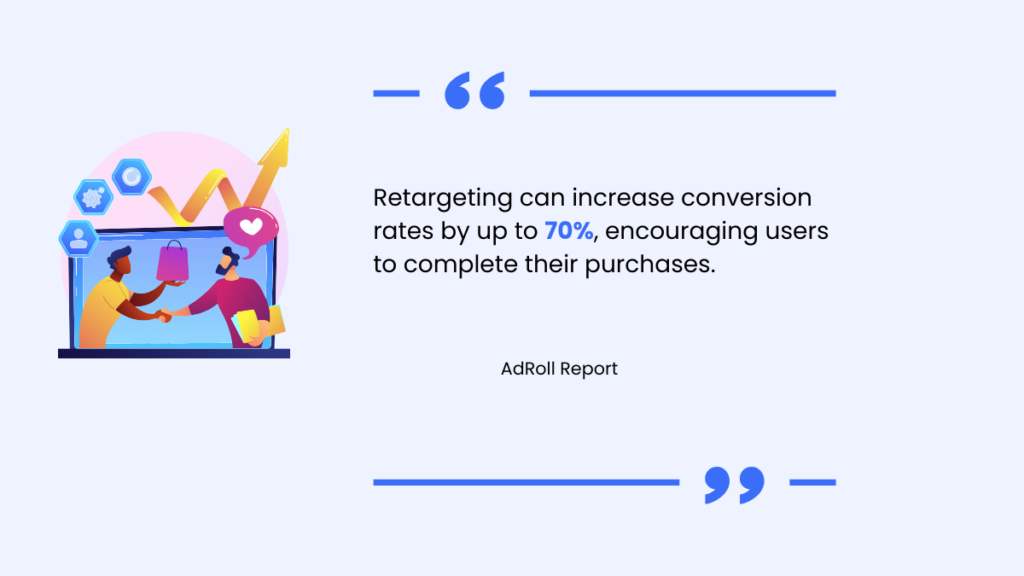
Deals can be more alluring by adjusting pricing and offers based on cookie-tracked user behaviour.
HubSpot research shows that dynamic pricing can lead to a 15% increase in revenue by providing personalised pricing and promotions to users.
5. Best Practices for Revenue Optimisation with Cookies
Transparent cookie consent practices build trust with users and encourage engagement.
According to the ICO, clear and honest consent practices improve user trust and lead to better engagement, helping to maintain a positive relationship with customers.
Regularly reviewing and optimising your cookie strategy can enhance its effectiveness.
Cookies also help secure websites by detecting suspicious activities and patterns to prevent fraud, projected to reach $48 billion in 2023.
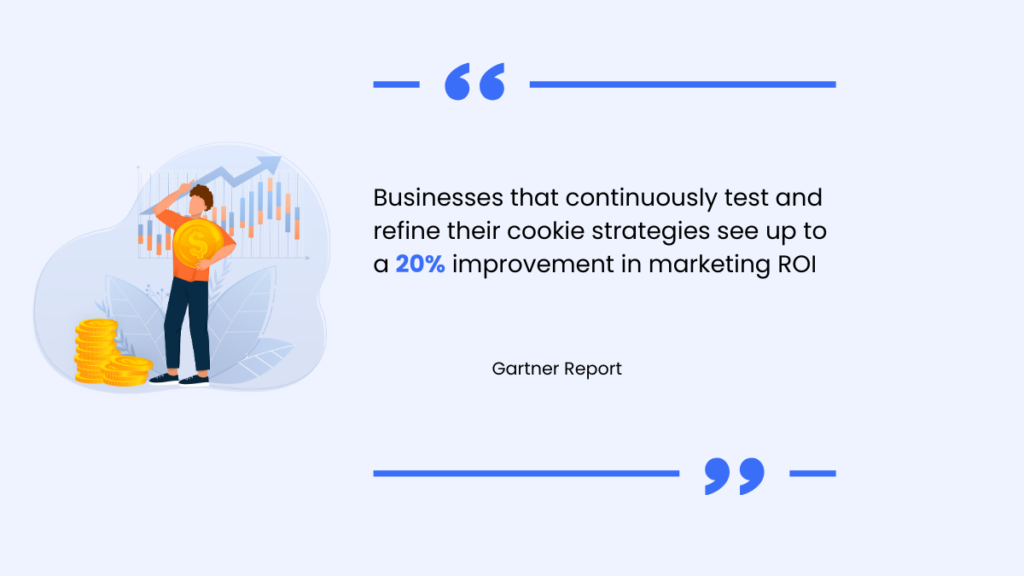
6. Legal Compliance and Revenue Growth
GDPR and CCPA regulations protect your business from fines and legal issues.
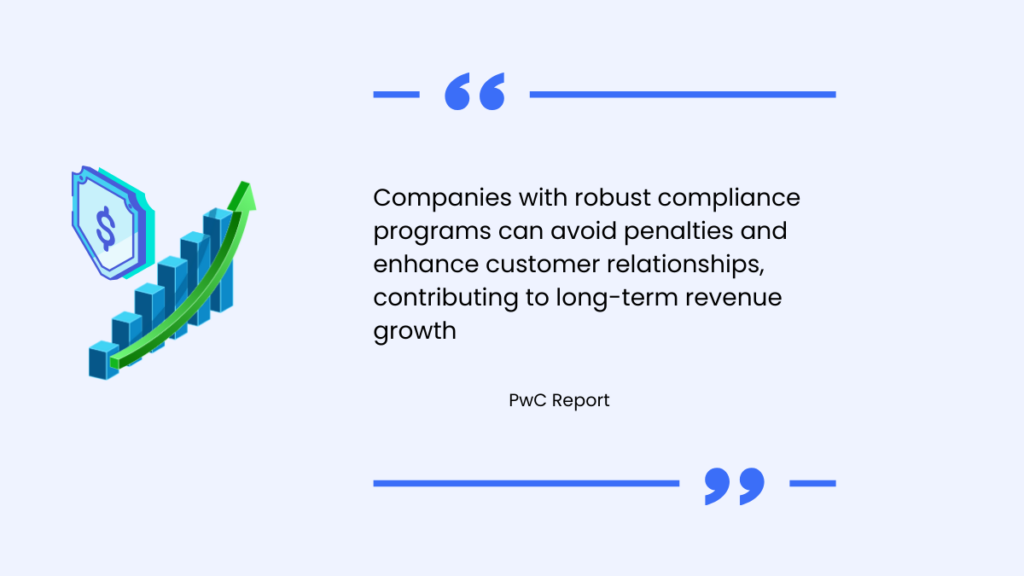
Balancing revenue goals with user privacy by offering clear information and control over cookie usage can enhance user trust.
Deloitte research indicates that Privacy-conscious practices can improve customer loyalty and drive repeat business, supporting sustainable revenue growth.”
Challenges of Cookie Usage IN E-Commerce
Privacy Concerns: 72% of Americans worry about online tracking.
Regulatory Compliance: 54% of companies struggle with privacy laws.
Browser Restrictions: 64% of browsers block third-party cookies.
User Consent Management: 43% of companies find consent management challenging.
Data Security Risks: 27% of data breaches involve web applications.
Limited Lifespan: 40% of users clear cookies monthly.
Cross-Device Tracking: Only 30% of marketers can track users across devices.
Bottom Line:
Cookies are powerful tools for driving revenue growth on e-commerce websites. Using cookies on e-commerce websites for personalisation, cart functionality, user analytics, and targeted marketing can enhance the user experience and boost sales.
Implementing best practices and maintaining compliance will ensure that your cookie strategy effectively contributes to increased revenue while respecting user privacy.
Seers simplifies this with a solution that ensures GDPR and CCPA compliance, offers customisable consent banners, and addresses privacy issues. Let Seers handle the complexities so you can focus on driving your business forward.
Elevate Your E-Commerce with Seers

Don’t let cookie compliance be a challenge.
By integrating the Seers cookie consent solution, you can:
- Ensure compliance
- Protect user data
- Boosts conversions
- Optimise revenue growth
